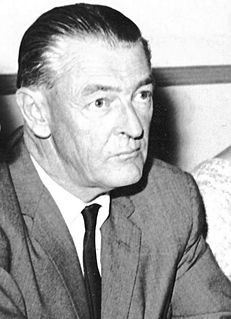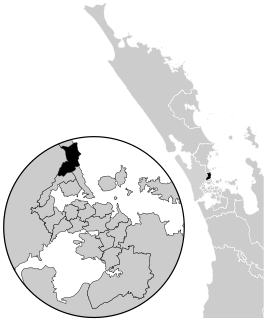This article needs additional citations for verification .(July 2017) (Learn how and when to remove this template message) |
New Zealand Democratic Party for Social Credit | |
|---|---|
 | |
| Party Leader | Chris Leitch |
| Founded | 1985 |
| Preceded by | Social Credit Party |
| Headquarters | P.O. Box 5164 Waikiwi Invercargill |
| Ideology | Social credit Economic democracy Left-wing nationalism |
| Political position | Left-wing |
| Colours | Green |
| Slogan | "Here for Good" |
| House of Representatives | 0 / 121 |
| Local government in New Zealand | 0 / 1,895 |
| Website | |
| socialcredit | |
The New Zealand Democratic Party for Social Credit (shortened to Democrats for Social Credit) [1] is a small leftist political party in New Zealand whose policies are based on the ideas of social credit. The party has been known as the Social Credit Political League, the Social Credit Party and the New Zealand Democratic Party and was part of the Alliance for a time.
Social credit is an interdisciplinary and distributive philosophy developed by C. H. Douglas (1879–1952), a British engineer who published a book by that name in 1924. It encompasses economics, political science, history, and accounting. Its policies are designed, according to Douglas, to disperse economic and political power to individuals. Douglas wrote, "Systems were made for men, and not men for systems, and the interest of man which is self-development, is above all systems, whether theological, political or economic." Douglas said that Social Crediters want to build a new civilization based upon "absolute economic security" for the individual, where "they shall sit every man under his vine and under his fig tree; and none shall make them afraid." In his words, "what we really demand of existence is not that we shall be put into somebody else's Utopia, but we shall be put in a position to construct a Utopia of our own."
The Alliance was a left-wing political party in New Zealand. It was formed at the end of 1991 by the linking of four smaller parties. The Alliance positioned itself as a democratic socialist alternative to the centre-left New Zealand Labour Party. It was influential throughout the 1990s, but suffered a major setback after its founder and leader, Jim Anderton, left the party in 2002, taking with him several of its members of parliament (MPs). After the remaining MPs lost their seats in the 2002 general election, some commentators predicted the demise of the party.
Contents
- Policies
- History
- Origins (1954–1990)
- Alliance (1990–2002)
- Progressive Coalition and independent again (2002–present)
- Electoral results
- List of presidents
- List of parliamentary party leaders
- Former parliamentarians
- See also
- References
- External links
The party has been known as the Social Credit Party and Social Credit Political League and was for many years the largest minor party in New Zealand politics, gaining 21% of the total votes in 1981. The party's economic policy is still based on social credit theories while in social matters it takes a position similar to progressive liberal parties elsewhere. The party does not hold any seats in the New Zealand Parliament, but it held one seat from 1966 to 1969. The party also won a seat in a 1978 byelection and held two seats from 1980 to 1987. Party members also held seats when the party was part of the Alliance.

The New Zealand Social Credit Party was a political party which served as the country's "third party" from the 1950s through into the 1980s. The party held a number of seats in the New Zealand House of Representatives, although never more than two at a time. It has since renamed itself the New Zealand Democratic Party, and was for a time part of the Alliance.

The New Zealand Parliament is the legislature of New Zealand, consisting of the Queen of New Zealand (Queen-in-Parliament) and the New Zealand House of Representatives. The Queen is usually represented by her governor-general. Before 1951, there was an upper chamber, the New Zealand Legislative Council. The New Zealand Parliament was established in 1854 and is one of the oldest continuously functioning legislatures in the world. It has met in Wellington, the capital of New Zealand, since 1865.









